“Bien épargner” aura une signification différente pour chacun; selon votre horizon de placement, vos priorités, votre profil de risque, votre situation familiale, etc.
Comment mieux diversifier votre patrimoine
By Cedric Privat
This article is published on: 21st July 2023

L’Ipsos nous apprend que seul 24 % des Français déclarent épargner en vue de la retraite.
L’immobilier et les actifs prudents (livrets, support en euros de l’assurance-vie) sont très largement majoritaires et représentent plus de 80 % des actifs détenus par les ménages français.
Dans un contexte de forte hausse de l’inflation et de remontée des taux d’intérêts, diversifier son patrimoine semble désormais impératif.
Cette problématique est d’autant plus importante si vous travaillez en Espagne, la retraite y étant largement inférieure à la retraite française. Selon la “Seguridad Social”, la retraite moyenne en Espagne est actuellement de € 1’193.
Pourquoi diversifier votre épargne?
Hormis votre épargne de précaution (3 mois de salaire), laisser une partie importante de vos liquidités sur des comptes bancaires s’avère être un risque car vous perdez du pouvoir d’achat face à l’inflation.
Différentes diversifications sont possibles telles:
- Le type de produit
- L’impact fiscal
- L’horizon de placement
- Le risque
- Les zones géographiques
- Les devises
Le but étant de réduire le risque et d’optimiser la performance sur le moyen et long terme.
Les options: de la plus sage à la plus risquée
- Monétaire: Livret A & comptes bancaires rémunérés
- Obligations: dettes d’un État ou d’une entreprise à qui vous prêtez et qui vous doit des intérêts
- Immobilier: résidence principale, secondaire, ou locative
- SCPI: immobilier locatif via un placement collectif (pierre papier)
- Actions: vous possédez des parts de sociétés via un investissement en bourse
- Spéculative: matières premières, montres, voitures, Crypto, Art, etc.
Le risque de chaque fonds (actions, obligations, immobilier…) est calculé sur une échelle de 1 à 7. (Indicateur Synthétique de Risque)

L’assurance-vie
L’assurance-vie est le premier moyen d’épargne en France. On le surnomme le « couteau-suisse » indispensable des épargnants.
Les risques encourus par l’assuré varient selon le support choisi : les contrats souscrits en euros bénéficient d’un capital garanti, alors que le capital des contrats en unité de compte ou en action varie en fonction des marchés. Il est également possible d’investir dans l’immobilier.
Une assurance-vie « multisupport » permet de se construire un portefeuille diversifié et adapté à la situation de chacun.
Les gains accumulés ne sont pas imposés tant qu’un rachat vers votre compte bancaire n’est pas activé.
Vous pouvez retirer de l’argent quand vous voulez mais un rachat les premières années peut entrainer une fiscalité plus lourde ou des frais de sortie anticipés.
Aucun investissement ne peut offrir à la fois un bon rendement, aucun risque de perte en capital et une bonne liquidité. Il est important au préalable de mettre en place une stratégie patrimoniale afin de s’adapter à sa situation, son profil de risque, calculer les sommes allouées pour une épargne court/moyen/long terme et préparer/chiffrer son avenir, coûts futurs et sa retraite.
Le groupe Spectrum à Barcelone se propose d’étudier gratuitement votre situation afin de vous aider, de vous conseiller, de vous orienter ou de vous guider dans vos démarches patrimoniales.
N’hésitez pas à nous contacter afin d’obtenir les réponses d’un professionnel aux questions que vous vous posez.
0% tax when selling your UK business
By Barry Davys
This article is published on: 20th July 2023

How you structure the sale of a business is always important. And never more so when you make an opportunity to move to Spain and then sell your business. Spain has a scheme to attract foreign workers, professionals and entrepreneurs with tax incentives.
This scheme can lead to 0% tax on the sale.
So unsurprisingly, moving to Spain is becoming an increasingly popular option.
Before inviting you to discuss the scheme, it is important to show how I help business people in this situation with their wealth planning. In addition to the 0% tax scheme there is greater depth to the planning. Will you live happily ever after? Well let’s see.
Selling a business is often a life changer. You have more time. You are not with the same people that you have been with for, in some cases, years. You suddenly have a large bank balance. And you spend time wondering what comes next in life?
I cannot help with the “what comes next?” question but I do help people get their affairs in good order so they can move forward.
My experience of working with people who have sold a business gives me insight into what things are important financially after a sale. Having sold a business myself I also have an understanding of the feelings that appear after the sale about the new found wealth.
The bank balance
The warm feeling that comes with looking at a new, very much bigger than normal, bank balance is great. It is a sense of achievement and reward for all the work you put into building your business and sacrifices you made along the way.
This feeling makes us focus on the figure on the bank statement. However, if we have sold at 55, with average life expectancy, we could live for another 30 years; longer if you are a woman. Life expectancy, as a result of medical advances, means we might well live even longer.
The secret to dealing with this bank balance focus is to check your answers to these questions:
- Have I just lost my salary?
- Have I just lost my dividends?
- Do I want to work anymore?
- How much do I need to live on if I don’t work?
- Will I run out of money?
These questions help us take the focus away from the big, juicy bank balance to the reality of providing an income for the next 30 years.
Question five may seem a strange question having just received a payment for the sale. It is actually an important one. The large bank balance typically tends to lead to big purchases; a car for husband and wife, a new house, helping or buying a house for children, a boat, gifts to other members of the family etc.

All these purchases and gifts have one thing in common. Not one of them produces an income!
Another common action is to invest in another business. I have seen time and time again, and I have been guilty of this myself, of investing in a company in a completely different sector, or perhaps B2C when your business was B2B. It can be a very expensive mistake to think “I know about business/marketing/retailing/manufacturing” etc and then investing in a different type of business.
What made our business successful was our ingrained experience of our sector and market, our knowledge of our suppliers and competitors and our customer needs. Moving to a different type of business for investment can render all that experience irrelevant. The assessment of the investment opportunity can be skewed by thinking we can rely on our experience.
So what should we do?
Post sale action
Secure your income first and then buy the toys, make further investments and make the gifts. But how do you do that when the future is unknown? By using some of the very best cash flow modelling software it is possible to show you. With inputs that are specific to you. With real data on portfolio performance including what happened during the financial crisis and the pandemic. Graphical output shows in real terms how to generate your income and what you could spend on other things.
For more information on how the modelling can work for you, book a call, in confidence, with the author Barry Davys, The Spectrum IFA Group, at a time that is convenient for you on his online system.
The earn out
I often hear people who are selling say “and I am due a further sum of X in Y years”. It is considered as the ‘cherry on the top’ part of the deal even when it is contingent on hitting a future target. We can’t help but include it in our “How much am I worth?” calculations in our head, even though it is contingent on a target that we have no control over (loss of control is a function of selling the business).
The modelling helps with this issue too. A model with zero return from an earn out period in a contract allows you to plan with the resources you have available now. A second model is provided showing receipt of the further payment when it becomes clear the payment will be made. This second model can account for any and all of the following:
- Earn out period
- Retained shareholdings
- Loan notes
- Tax rebates
Your pension
As we have been building the business we may have thought of pension contributions as a way of managing corporation tax, personal income tax or both. The pension pot itself is generally viewed as ensuring you have a comfortable retirement.
Now you have (or will have) a larger amount of wealth outside your pension it can be very beneficial to use this non pension wealth to provide your income in retirement. Firstly, it is possible in Spain to provide you with an income with a lower tax rate than applies to a pension. This gives you income that lasts longer into your retirement, allows you to have a better standard of living, or both!
Your pension pot then becomes one of the most effective IHT planning tools at your disposal and it is already under your control.
Inheritance tax in Spain
Inheritance tax in Spain is less about where you are living and more about your connection to the UK and also where your children live. Connection to the UK because even if we leave the UK a long time before death, we are generally considered to be “Domiciled” in the UK. Domiciled has a specific definition in the UK allowing HMRC to claim inheritance tax from an estate no matter where you die
Where you children live is important because they are the taxable entity, not your estate, for inheritance tax in Spain.
The importance of inheritance tax planning increases significantly after the sale of a business. It may be that you have previously qualified for family business exemptions on inheritance tax in both Spain and the UK. This was granted based on your shareholding in the company. Now the business has been sold, the exemption disappears.
Relatively simple planning can give outstanding results in reducing the amount of inheritance tax due in Spain.
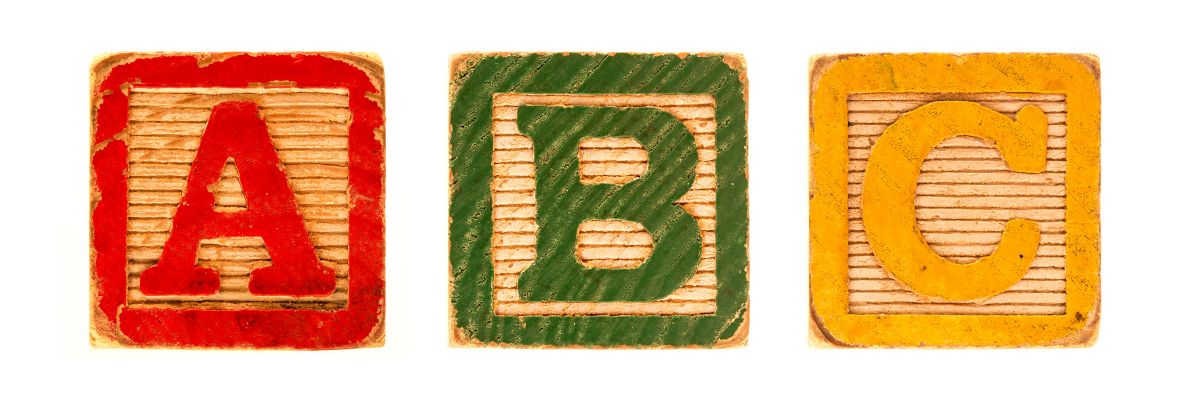
Don’t forget the basics
Our feeling of abundance pushes the basics from our mind. However, there are a few basics that we should attend to post sale and which we will then not have to worry about again. This attention often means tax savings and reduction in expenditure.
Life Assurance
Have you had life assurance provided by your business? Has that now disappeared? Do you still need life assurance if you now have a large capital sum? Do you have life cover taken out in your personal name?
When advising people on the post sale process these are the sorts of questions we address. In one recent post sale example my advice saved a husband and wife £400,000 EACH in potential inheritance tax.
Private medical insurance and income protection insurance
Were either of these insurances paid for by your company? Do you need to replace or update an existing policy and especially so when you move to Spain?
Income protection insurance will pay you an income if you cannot work. However, with the loss of earnings as a result of the sale these types of policies become void. The good news is that by addressing the income issue first in your planning, you are already meeting the need for income. The policy is no longer needed and so there is a cost saving from not having to pay the insurance company a premium.
Where next?
It is especially important that planning post a sale is broad enough to look at your overall situation and not be focussed just on the 0% tax or how to invest the sale proceeds. People have also found that continuing advice brings better outcomes for the family and ongoing piece of mind.
Of course, the 0% tax is very important and so I discuss this as part of the planning of the sale of your UK business in detail. To arrange a meeting or call please use this link to choose a time that is convenient for you to find out more about the 0% tax scheme and wealth management for you and your family.
However, perhaps you’re not interested in a holistic financial approach. If you believe investing is just about picking the right stocks or funds and have no interest in considering your complete financial picture – including tax strategies, estate planning, retirement goals, and risk management – I must admit, my comprehensive approach won’t be your cup of tea.”
Barry Davys MBA Dip PFS
Partner, Spectrum IFA Group
Building your portfolio after selling a business
By Barry Davys
This article is published on: 19th July 2023

Travel broadens the mind, and the investment portfolio
Have you ever been to India for work or to travel?
I haven’t but my partner went for work and my daughter for travel. Some seven other friends have also travelled and all have reported the same way. It is a great place, still lots of improvements to be made, but the people work hard and are generally friendly.
With a current population estimated at 1.46 billion (now larger than China’s), India accounts for around 18% of the world’s total population.
If you were running a business with:
- 18% of the world’s population in your home market
- English being spoken well by a good proportion of the population and with English language ability providing valuable access to international markets
- skilled and hard working employees
Would you be mildly optimistic about your outlook? Of course, you would have to deal with the day to day issues of logistics, marketing, financing etc but even so, you might still be mildly optimistic.
The story is only just beginning. Yours and my parts of this story come at the end of this article. Read on.
The IMF, World Bank and Goldman Sachs are all optimistic about the country’s outlook. India is currently the fifth largest country by size of economy. However, by 2050 Goldman estimates it will be the third largest in the world. Sounds good but when you examine the numbers it really is impressive.
In 2022 the Indian economy was valued at $3.385 trillion. Goldman expects the economy to be $22.2 trillion by 2050. By 2075 it is anticipated it will be $52.5 trillion, making it the second largest economy in the World.
To give some context, the economic output (GDP) of some other countries in 2075 are estimated to be:
- USA $51.5 trillion
- Japan $7.5 trillion
- UK $7.6 trillion
- Germany $8.1 trillion

Your involvement in the story
Sounds good but what has this got to do with me?
If you are selling or have sold your business at, as an example, age 60, it is likely that you will live around 30 years. This change in India to 2050 will take place in your lifetime.
If you have children, and especially with grandchildren, this change in India to 2075 will take place in their lifetimes.
I am not an investment manager but am able to arrange for discretionary fund managers (DFMs) to run investment portfolios on behalf of my clients. I direct the DFM to invest in a manner that fits both with your attitude to risk and your longer-term planning objectives. This includes requirements for income and inheritance tax planning for your family.
I am forward looking. This story of India is not a recommendation to invest in India. It does illustrate however that if this economic expansion is expected to develop over your lifetime, we could ask the DFM to consider including at least some Indian exposure in your portfolio.
If you wish to look to the future, book an appointment for an initial call with Barry Davys at a time that is convenient for you, using his online system at Selling your Business
Sensible Inheritance Tax Planning
By Barry Davys
This article is published on: 17th July 2023
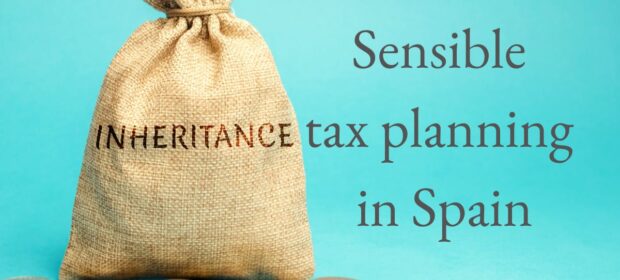
One of the principals of financial planning is to keep things as simple as possible. Often that is easier said than done. Often, trying to plan in the context of unknowns means we have to try to cover a number of options. Examples include what will future investment performance be, which country will you live in in the future, how many children and grandchildren will you have and indeed, how long will you live?
One piece of planning that is quite straightforward is a piece of planning for passing wealth onto your children when one lives in the UK and the other in Spain. As an example let’s use the family called the “Sensibles”:
- Mr & Mrs Sensible live in the UK
- Child Sam Sensible lives in Spain
- Child Una Sensible lives in the UK
- In Spain there is gift tax if money is given to Sam during Mr & Mrs Sensible’s lifetime
- In the UK, there is no gift tax
- In Spain, the recipient of money from a Will has to pay Inheritance Tax (IHT)
- In the UK, it is the estate of the person who has died that pays the IHT
- Mr & Mrs Sensible wish to do some UK IHT planning and give money to their children now
The problem for Mr & Mrs Sensible is that if they give money to their children now, this will lead to Sam in Spain having to pay Gift Tax now. If they leave their money to Sam in their Will there are allowances and discounts available which means that he will pay less tax than in the event of receiving a gift.
The Solution
The solution is quite straightforward. Mr & Mrs Sensible should give the total amount of money they wish to give to Una in the UK now. This will reduce their future liability to UK IHT. To make sure Sam and Una are treated the same they should then deduct the amount given to Una from her half in their Will.
- Sam pays no gift tax and Una pays no gift tax
- Sam pays less tax on the death of his parents because of the discounts available on IHT for bequests from parents to children
- Mr and Mrs Sensible have reduced their UK IHT bill
What a sensible thing to do.
Tax embargo in Spain for incorrect declaration of taxes
By Chris Burke
This article is published on: 10th July 2023
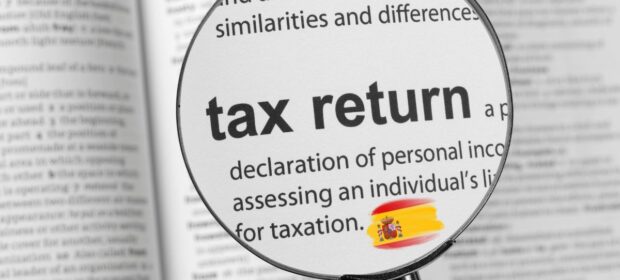
When moving to Spain you find out pretty quickly that the way things work here, bureaucratically and lawfully, are very different from the rest of the Western world, particularly the UK. One such example is if you are suspected of making an incorrect tax declaration or filing. Even if advised by your accountant/tax adviser to do so, you are liable and not them. In Spain, simply put, you are guilty until proven innocent of any suspected wrong doing.
With that in mind, one major example is of a self-employed person having their taxes filed incorrectly by their accountant and being unaware. At some point in the future the individual is notified that they have not responded to the tax office’s request to query this, and thus immediately have their income ‘embargoed’ and the monies they are suspected to owe are either taken from their Spanish bank account and/or taken at source from their main customers/invoices.
In one particular instance the tax office claimed they had ‘written confirmation’ that the notice of their investigation was delivered 3 times, however this confirmation is a signed document from the post office delivery person saying they were delivered, not the recipient signing to say he or she received them. Then, due to you not responding, the case is now closed and you are guilty by not replying, thus the money they believed you owed, you now owe and must be paid.
I have seen this happen many times over the years and cause considerable pain and suffering to people. Imagine the tax office saying you owed them €40,000 then taking it from your bank account, or deducting it each month as you received invoice payments. How do you then pay your bills? And in all of this, you are the complete innocent due to your accountant wrongly declaring your taxes.
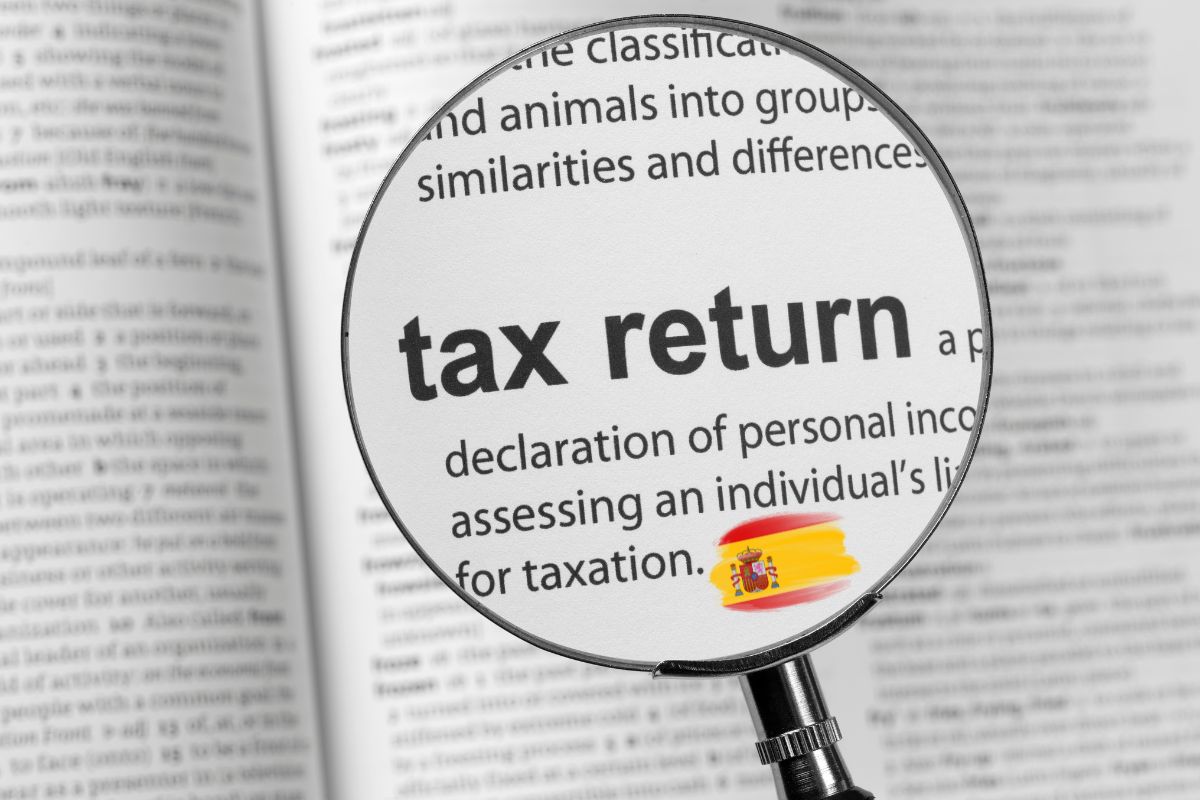
What can you do? Well, the process is threefold:
- Firstly, you have to contest the ruling and see proof of what they are finding you guilty of (e.g., incorrectly filing) and that they actually delivered the documents to you.
- Secondly, if you feel their ruling is incorrect, appeal against it explaining why.
- Thirdly, as the appeal will likely be unsuccessful you then go through an ‘arbitration’ process where your likelihood of winning is approximately 75% and above.
The bad news is this process normally takes between 3-5 years. If you win, you will receive your money back plus some interest. If you lose, the European courts are your last option.
My best advice for anyone to avoid this is:
- Make sure you are confident in the accountant you are using to reduce the chance of this happening.
- Always make sure your address on file at the tax office is up to date.
- Only keep in a Spanish bank account money you need to live on. The tax office cannot legally take money from bank accounts outside of Spain unless they go through a court process.
If this has happened to you feel free to get in touch – I can recommend a law firm/accountant that has experience in this field and has been successful. Alternatively, if you would also like a recommendation for an accountant that won’t make these mistakes (hopefully, in Spain it’s never 100%!) then again feel free to reach out.
Click here to read independent reviews on Chris and his advice.
Reducing Spanish tax
By John Hayward
This article is published on: 27th June 2023

Use a beneficial savings structure
Investing money is often seen as a risky thing to do even though it is generally understood to be necessary. For example, those receiving pension income would not be in the same position if the companies paying the income had left all of the pension contributions in a current account or in a box under the bed.
Financial markets can be volatile (always, I hear you shout). We fully appreciate this. We also acknowledge that inflation has created higher interest rates. Better news if you are a saver but not so pleasant for mortgage payers, or parents having to help their children pay off increased debt.
Let us imagine that, for the foreseeable future, we have high inflation accompanied by higher interest rates. Using an amount of £500,000, I have compared depositing in a savings account with investing in a Spanish compliant investment bond and I have used an interest/growth rate of 4%. I have based my comparison on the bond paying growth to the bondholder’s bank account and using GBP as I cannot see any Euro accounts paying 4%.
– £500,000 at 4% = £20,000
– Using an exchange rate of 1.16 £/€,
– £20,000 = €23,200
The deposit account interest is taxed in full and, at current 2023 rates, is €4,752 each year. This has to be declared in the annual tax return.
The Spanish compliant bond attracts tax on the gain within the withdrawal. I have based the calculation on the same amount being withdrawn i.e., €23,200. In the first year, the taxable gain within this is only €892 and the corresponding tax is €170. The taxable amount within the bond income increases over time but, over 10 years, the tax is:
– €47,520* on the deposit account interest
– €8,381* on the bond income
This gives a tax saving of over €39,000 over 10 years by using the Spanish compliant bond.
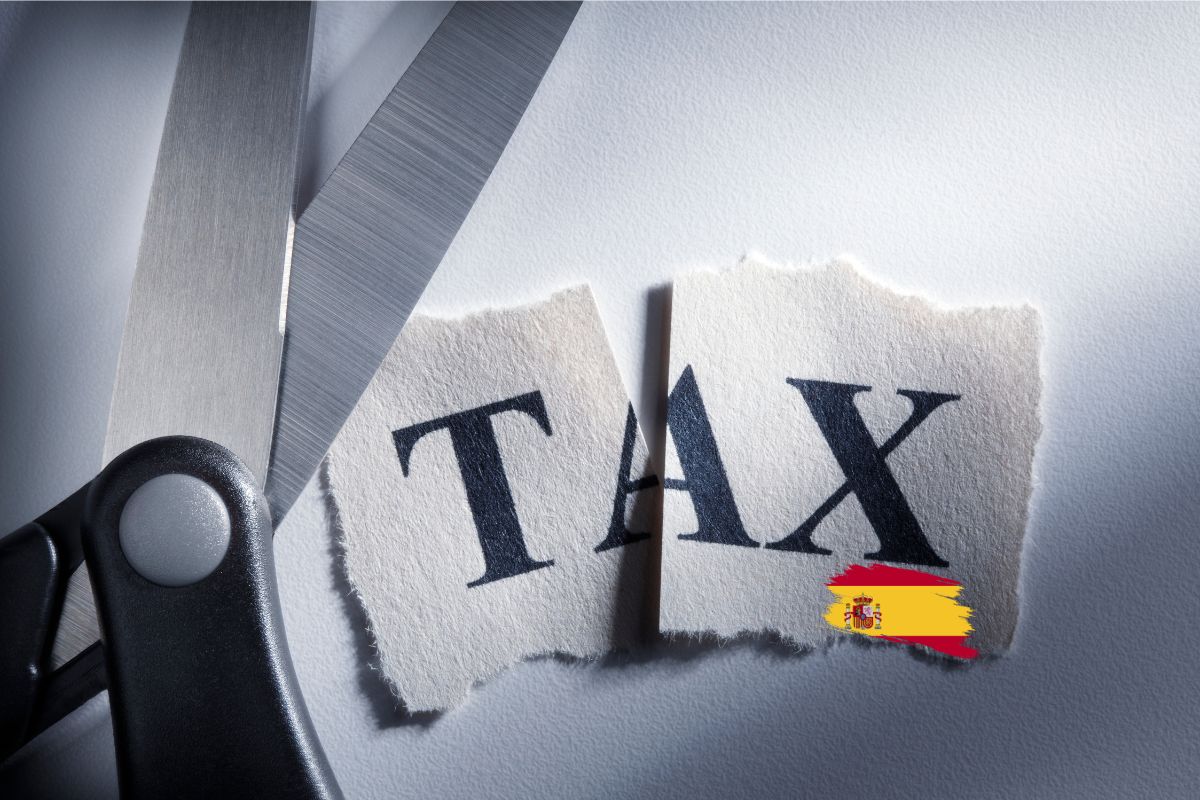
If no money is withdrawn from the bond, no tax is payable whereas the interest on the deposit account will continue to be taxed.
If the bondholder moved back to the UK, and nothing had been withdrawn whilst living in Spain, any growth on the bond whilst resident in Spain would be ignored by the UK tax office.
As an added benefit of reducing taxable income, wealth tax can be reduced. See this Wealth Tax in Spain article.
There can also be inheritance tax benefits with the bond when compared to the deposit account.
Well managed portfolios have consistently outstripped inflation. Conversely, deposit interest rates offered to savers have consistently under-performed inflation over the years.
To find out how we can help you with your existing investments and tax planning, and provide you with ideas for the future, contact me today at john.hayward@spectrum-ifa.com or on +34 618 204 731 (WhatsApp)
* E&OE. The above is a simplified example for illustrative purposes and general guidance only.
How to reduce Wealth Tax in Spain
By John Hayward
This article is published on: 21st June 2023

Earlier this year, I wrote an article about the introduction of solidarity tax in Spain. This is a “temporary” (we shall see) tax on wealth for those with more than €3,000,000 in assets. This is in addition to wealth tax although any wealth tax due can be deducted from the solidarity tax bill. (This is not the case for residents of the Madrid or Andalusia regions as there is no Wealth Tax currently).
I have been working with clients who are affected by these taxes, trying to find ways of reducing the tax liability. Reducing wealth by gifting to, say, children is an option but that can create additional immediate tax problems. Also, for a number of different reasons, some clients are not willing to gift anything in their lifetime.
The amount of wealth Tax that has to be paid can be governed by income. Your income tax and wealth tax cannot exceed 60% of your total taxable income.
Example:
– Total taxable income is €40,000
– Tax payable €8,000
– Assets subject to wealth tax €3,000,000
– Wealth tax due €39,000
– The maximum that can be paid when adding income tax and wealth tax together is 60% of the total taxable income (€40,000).
– €40,000 x 60% = €24,000
Therefore, the maximum wealth tax that can be paid is €16,000 (€24,000 less €8,000 income tax).

However, having to pay €16,000 a year in wealth tax is still not particularly nice. What we can do is look at the income in order to see if this can be restructured. Notable targets for this type of planning are savings interest (more relevant at the moment) and income/dividends from shares and investment funds. By careful planning, we can provide the same level of income yet reduce the tax. Please visit this Tax Benefits of a Bond page which illustrates one of the major benefits of a correctly structured investment bond which not only reduces income tax but also helps to reduce wealth tax.
To find out how we can help you with your existing investments, pensions, and tax planning, and provide you with ideas for the future, contact me today at john.hayward@spectrum-ifa.com or on +34 618 204 731 (WhatsApp)
Financial Top Tips in Spain
By Chris Burke
This article is published on: 11th June 2023
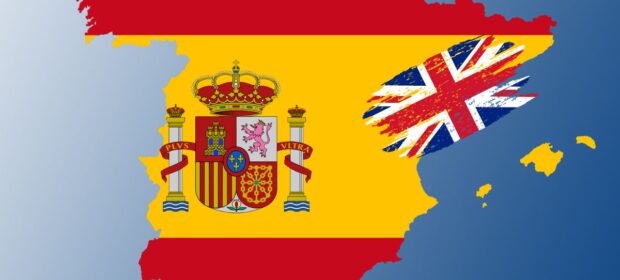
Thanks to everyone for their positive feedback on these newsletters. They are purely to give us ‘foreigners’ the heads up on financial matters that are at best opaque here in Spain. Before I head off to a chiringuito, as it’s that time of year, this month we shall be concentrating on the following important topics:
- National Insurance deadline to backdate/buy years in the UK – act now!
- What pension are you likely to receive as self-employed/autonomo here in Spain?
- How much money do I need to retire (with example) comfortably?
- Legal aid in Spain for British nationals
UK National Insurance deadline approaching
I meet many people who have contributed into the UK state pension (National Insurance contributions) and then move abroad. They may also pay into other countries´ state pensions, but the BIG potential issue is that no one knows for sure if these will be combined and what income in retirement you will receive. Some people say ‘Well they have to, otherwise it’s not fair and that’s how it works now/used to before Brexit’. I tend to focus on as many certainties as possible and always try to have a ‘more guaranteed’ plan instead of relying on what governments do and don’t do, as that doesn’t fill me with confidence.
I have met many people with 5 years’ state contributions here, 10 there and another 5 somewhere else and they don’t actually end up receiving ANY state pension. This is not the situation I want to end up with and that’s why I recommend to anyone who has existing UK NI contributions to continue to contribute to them, aiming to reach the maximum years needed to receive a full UK state pension. As a non-UK resident, if you are paying taxes in Spain it´s normally £12 a month to contribute to the UK system – for me it’s a no brainer.
With that in mind, normally you can ‘backdate’ or buy past years’ contributions to fill in any gaps you may have. However, from the end of July (next month), you will only be able to backdate 6 years, whereas before this deadline you can buy more. So, if you have significant gaps in your UK NI contributions you only have until next month to ‘fill’ a part of them. You can find out more here: National Insurance Gaps
Self-employed/autonomo state pension amounts
I wanted to clarify something that not many people here realise when they contribute into the social system as self-employed. In the UK you pay your contributions and the number of years you have contributed dictates, more often than not, how much you receive. However, this is not the case in Spain.
Many people are autonomo here and presume the monthly payment they make to the social security, if made over the necessary number of years, (currently 35), will give them the full Spanish state pension – unfortunately that is incorrect. That is because it’s not JUST the number of years you contribute, but also the amount you pay. Not many accountants will confirm that there is a choice on how much you can pay each month towards your social security – a low, medium or high amount. Therefore, most people pay the low amount for many years and only realise the problem when they start looking closer, usually at retirement age. I hope most people are sitting down when I tell you that if you paid the minimum contributions for the full number of qualifying years in Spain, you would receive around €643 a month, (almost half of the UK amount), whilst the maximum is €2,617.
That is why I recommend to almost everyone that they ensure as far as possible that they are fully contributed into the UK system by retirement.
Here are the links to HMRC to read about and organise this, (please don’t get in touch with me for help as it has to be done by yourself):
- Information on paying National Insurance contributions from abroad – gov.uk/national-insurance-if-you-go-abroad
- The Form to complete to pay Class 2 voluntary contributions at £12 a month – gov.uk/government/publications/social-security-abroad-ni38
You can obtain a state pension forecast here in Spain if you have a digital certificate here
As a local accountant recently told me, and I quote, “My personal opinion is that it is better that you make your own pension, saving the money and investing it directly, and more because each time the pensions are reduced year by year and it is quite sure that in the future they will be reduced most, but this is only my opinion…… This is what I decided to do a long time ago.”
So, my advice? Pay the minimum here, pay your NI in the UK and reach the maximum alongside making your own provision along the way.
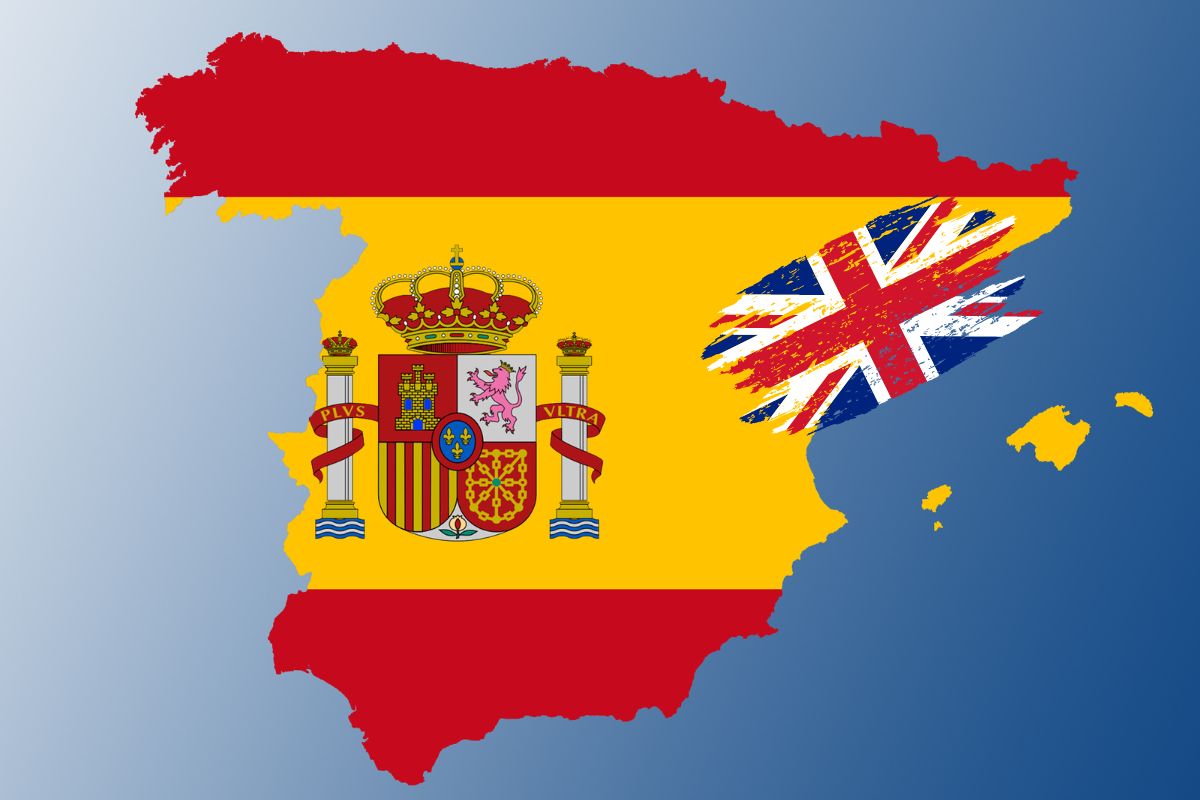
How much money do you need for a comfortable retirement?
Now, this is a very difficult forecast to make given everyone’s very different lifestyles, so I must use a few assumptions based on the following:
- Average annual salary – €3,000 per month after tax
- Medium lifestyle choice in retirement
Therefore, one could surmise an income needed in retirement of €4,000 per month before tax could be the average amount required. If we say you receive the full state pension of around €1,000 per month, you need to supplement €3,000 per month.
If you had €300,000 and it gave you 5% return each year this would give you €1,250 per month – so we still need another €1,750 per month. Of course, this means that as you are taking the full interest earned from your money pot it is not keeping up with inflation. Therefore, taking 4% at most is more applicable which gives you €1,000 per month income. However, if this income falls under income tax (such as property income), then from earnings upwards of the current allowance of €6,700 each year at age 65 in Spain you will be taxed. Adding that to the state pension, (which is declarable for income tax in Spain), we probably need to say it’s more likely €800 a month net from this monetary income.
So, we see the problem, what do we need to do? In essence, make your savings/monies and assets work for you over the years with professional management, taking into account tax mitigation. The more money you invest and the longer the time, the more comfortable or higher probability you will achieve your goals.
By the way, the answer to the above question also depends on how you are receiving the income. Tax efficient savings will greatly reduce you tax liability away from income tax to the lower, (and with possible offsetting capability) of capital gains tax. In monetary terms, to be safe I would suggest €800,000 plus a property rented out in retirement, in today’s money, as an income will safely achieve this. Is that the average persons situation?
Legal aid in Spain for British nationals
The UK has just released the following information on legal aid available for those residing in Spain which is perhaps ‘better’ than I would have expected and well worth knowing: Legal Aid Spain
Click here to read independent reviews on Chris and his advice.
If you would like any more information regarding any of the above, or to talk through your situation initially and receive expert, factual based advice, don’t hesitate to get in touch with Chris.
History: How it can save you money
By John Hayward
This article is published on: 31st May 2023

“If you think you have it tough, read history books.” Bill Maher
I was not particularly interested in history at school, mainly because the history masters (I went to a grammar school where we were taught by masters in moth-eaten gowns and who wore their ties outside their jumpers) would want to teach us about aspects that I had absolutely no interest in.
The Dark Ages, for example. They are called dark ages for a reason. These days I will happily surf the web (can we still say that?) going off-piste (no holding me now) and finding out brilliant historical facts that I am interested in and not what I am told to be interested in. Or maybe I am being told, in this Artificial Intelligence world that we now live in. Having said that, I have not felt any pressure to learn any more about the dark ages.
What is my point here? History is important because it can help us to make decisions. The problem is that, although we have plenty of information to refer to, and perhaps have taken on board, we all too often forget, or even choose to ignore, the “lesson”. In the investment world, it appears that everything that is happening now never occurred before. Or maybe it did but in a dark age when nobody was literate enough to write down what was going on.
Sell low, buy high. Isn’t that a ridiculous investment strategy? It seems not, to some. I have been in the company of many people over the years who believe that they know when to sell and when to buy back in when “things are better/markets have settled/it is less rainy/the dog has been to the vet”. This strategy has consistently proven itself to be flawed. Although past performance is no guarantee of future performance, history can give us an idea of what could happen in the investment world after different global events. In more recent years, the financial crisis of 2008 and Covid-19 in 2020 have been big tests. After both “incidents”, those who stuck with it have been better off.

Source: Financial Express
Focusing on a stock market index that many British people are familiar with, the FTSE100, in the last 15 years to 1st May 2023, there have been 4 years that have been negative. I apologise for spelling this out but that means 11 years have been positive. 11-4. I like that score. The average annual gain of the index over that period has been almost 13%. Even more interesting is the tendency that a bad year is followed by an outstanding one. This is why, when people sell, they crystallise a loss and then possibly miss the best part of any recovery.
I understand that not everybody is comfortable with sitting out large falls (2008 and 2020). To cater for this, we have solutions within our armoury which limit the downside whilst still providing long-term growth.
To find out how we can help you with your existing investments, and/or provide you with ideas for the future, contact me today at john.hayward@spectrum-ifa.com or on +34 618 204 731 (WhatsApp)
If you are feeling down, pick up a history book. It is certain to take your mind off your woes.
The Top Tips in Spain | May 2023
By Chris Burke
This article is published on: 15th May 2023

Summer is well on its way, lighter evenings and enjoyable temperatures are here for most and we will soon be commenting on how hot it is, I am sure!
For this month we shall be concentrating on the following topics:
- Driving licence swap now active
- UK investments/ISAs compared to Spanish options
- UK tax code changes – beware!
- State pension retirement options in Spain
Driving licence swap now active
From the 16th March 2023 the UK & Spain driving licence exchange, without the need to take a practical or theory driving test, is back at long last for those who are Spanish residents. From this date, as a resident you can legally drive in Spain on your UK driving licence, having 6 months to exchange.
You will also need to book a ‘Psicotecnico’ as I previously mentioned in my Newsletter and here is a link for the participating places to do this: Psicotecnico centres
So get your driving gloves back on and hit the Spanish roads! Be aware, this new exchange deal between the UK and Spain also means they will be sharing information on fines, speeding tickets and other incidents recorded (intoxication for example) so take note.

UK investments/ISAs compared to Spanish options
Many people who live in Spain are unclear or unaware of the difference between holding UK savings and investments compared to Spanish, and also what your options actually are here.
Unless you are on a specialist tax regime such as the Beckham Law, or potentially the new Digital Nomad Visa, Spain views UK savings and investments as non-Spanish compliant and therefore tax declarable/paid on any gains annually, EVEN if you do not access any of these monies. In the UK for example, normally the first advice any financial adviser will give their clients is to ‘max out’ their ISA and private pension contributions annually, as the tax saving alone makes this a great thing to do. However, once you become a Spanish tax resident these are not generally tax efficient and any gain on non pension related investments has to be declared and tax paid annually – therefore in many cases potentially nullifying the benefits of these.
So what can you do?
Most people speak to their Spanish bank and aren’t given any financial advice as such in respect of their circumstances and, in many cases, are sold investments that are not really what they are looking for, nor, dare I say, are any good from what my clients tell me!
When they have been put off by this they start looking around for something similar to what they had before they moved to Spain, and that’s when they find and/or are recommended to me. In Spain, we have access to several flexible investment solutions backed by some of the UK’s largest and well-known institutions. These products are EU regulated and highly tax-efficient, in essence similar to a UK ISA. We start by looking at your overall situation, carefully understanding what you are looking to achieve – whether that be a retirement plan, mid-term investment or complete financial planning for the whole family, taking into account university fees, or perhaps FIRE (Financial Independence, Retire Early). As the years go by and your money grows we provide ongoing advice to make sure these are optimised, taking into account life events that occur along the way.
UK tax code changes – beware!
On the 10th April this year UK state pensions were increased to rise with inflation up to £203.85 a week (10.1% increase) as the government restarted the ‘triple lock’ agreement it had suspended for one year. For most people receiving their UK pensions this was very good news, however for some it has created another problem depending on other income and how they are set up for tax purposes.
When leaving the UK as a tax resident it is important to inform HMRC. If you don’t, once your income rises above your personal allowance of £12,570 (with the state pension annually now £10,600) you will be subject to income tax in the UK and taxed accordingly.
Worse than that, this hike in UK state pension income has seen many retired people have their tax code changed, wrongly it would seem, by HMRC. In one case I have seen they were being taxed 40% on their income above the personal allowance. If the tax they are taking doesn’t look right a simple phone call to HMRC seems to solve the problem.
If you have set yourself up correctly as a non UK tax resident, then the only UK income you should be taxed on is property rental income. Most other income should not be taxed in the UK, but declared and tax paid in the country where you are tax resident.

State pension retirement options in Spain
Below I have listed the different options when you retire in Spain claiming a state pension – one notable new change is that to qualify for ‘partial retirement’ (also known as active retirement) you can only use Spanish contributions – previously you could include contributions from the UK.
Ordinary Retirement
Retirement age in Spain starts at 65, however for most it is 66 years and 10 months and by 2027 the number of years of contributions to retirement needed will be 38.5 years.
Flexible Retirement
After you retire, you can combine receiving a part of your pension with part-time work (reducing your full working day down to 50%). Your pension is reduced proportionally.
Partial/Active Retirement
If you have not reached the legal retirement age, you can combine a part-time employment contract with receiving part of your retirement pension.
**Reminder – to qualify for the Spanish state pension in general you must have contributed for 15 years, of which two at least should fall within the 15 years immediately preceding the start of your entitlement.
If you would like any more information regarding any of the above, or to talk through your situation initially and receive expert, factual based advice, don’t hesitate to get in touch with Chris.


